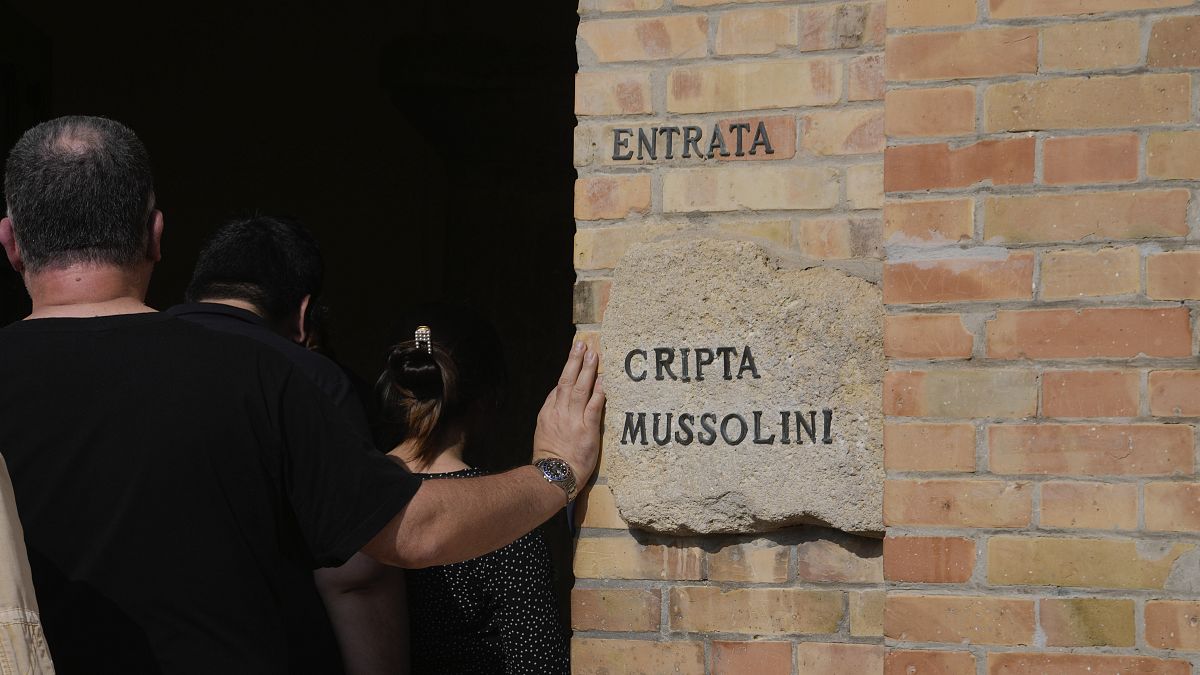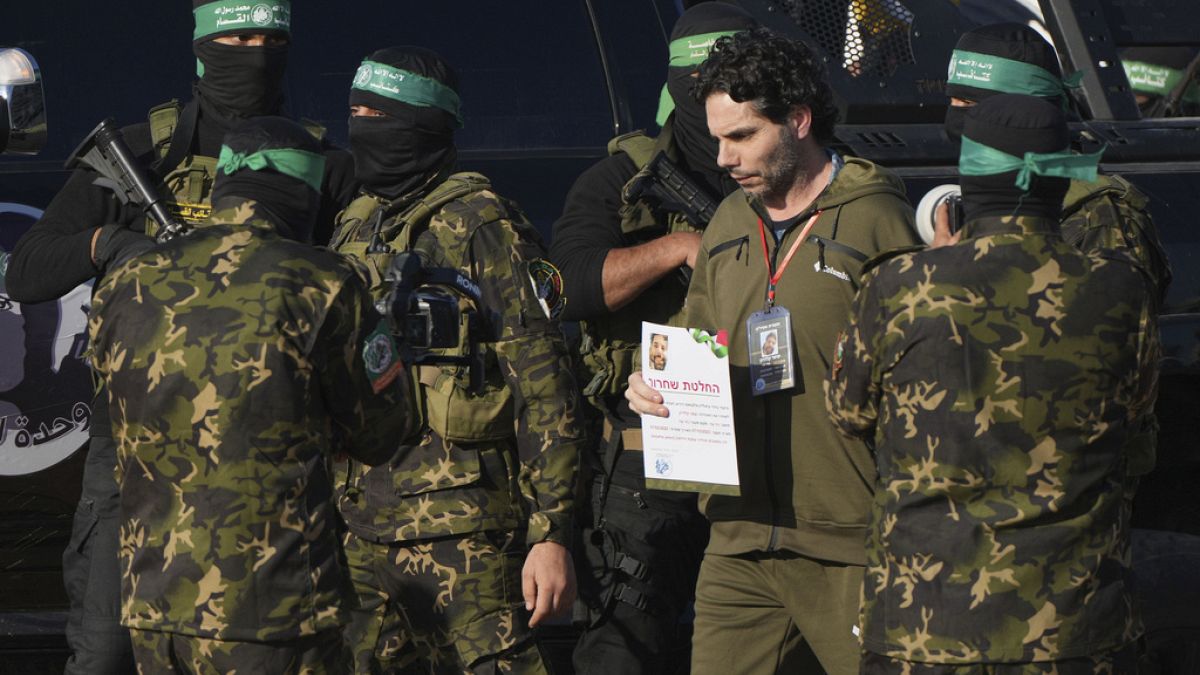Liz Truss battles to save her skin at UK election
She struggled to defeat a lettuce and now Britain's shortest serving prime minister is fighting for her political life in her Norfolk constituency.

SWAFFHAM, NORFOLK — We shouldn’t be here, following opposition candidates in what is — on paper — the Conservatives’ 11th safest seat in the country. But Liz Truss’s opponents smell blood.
The 49-day ex-prime minister has represented South West Norfolk since 2010, holding the constituency with a stonking majority of 26,195. Yet astonishingly, the seat is now in play for the opposition Labour Party in the general election on July 4. So how did it come to this?
South West Norfolk in east England is rural, white, elderly, Brexit-backing and held by the Tories since 1964. To take it, Labour would need a swing of 25 percent, far more than the national 16 percent swing polls suggest the party is on course for.
But with Labour widely anticipated to be on the cusp of entering government in a landslide of historic proportions, Truss now finds herself like many Conservatives across the U.K.: facing a challenge to hold on to a seat she would hitherto have assumed was all but in the bag.
Speaking to POLITICO on the campaign trail, representatives from Truss’ three main opponents — Labour, Reform, and a Tory turned independent — put the change of heart here down to what they claim is the MP’s lack of engagement, a wider disgust with the Conservative Party and a desire for a “local champion.” Truss, they all suggested, had been far from the latter since being parachuted into the seat for the 2010 election.
They point to her no-show at a hustings held mid-way through the campaign as further evidence of a lack of local engagement. Truss’ spokesperson said she had a diary clash and attended a pre-arranged campaign event.
They added: “She sent her apologies and urged anyone wishing to ask her questions to email for a response.”
“Liz is an experienced, high-profile campaigner who has dealt with over 16,000 pieces of casework from constituents since the last general election and will continue to fight for traditional conservative values and stand up for South West Norfolk.”
Work for it
“I wanted to run to make Liz Truss work for the seat,” said Labour’s candidate Terry Jermy, speaking to POLITICO in an office jammed with boxes of leaflets. “I’ve been a local councillor for 15 years and I’m incredibly frustrated at her lack of involvement with the constituency.”
The 38-year-old businessman assessed his chances of winning at “50:50” and has even started putting pen to paper to work on a victory speech, an action which would have been considered wildly optimistic even a few weeks ago.
“There’s a plausible argument for four candidates getting more than 10,000 votes each,” he said. “That’s what makes it really interesting.”
Jermy is campaigning on the NHS and rural issues. “I’ve had some very unpleasant personal experiences with the NHS,” he said. “My dad was very ill and we couldn’t get him a GP appointment. He got pneumonia and he died. My dad was 65. He didn’t need to die.”

Even Truss’ allies are nervous at the scale of opposition to her and her party. One, granted anonymity to speak freely, told POLITICO: “She’s probably going to win but it’s looking tight — she’s sweating on it a little bit. It’s extraordinary, really, when you think what a safe seat hers is.”
Followed by black SUVs with the life-time security provided to all former prime ministers, Truss’ arrival in the scenic villages of this attractive part of the country quickly creates a stir, popping up on local Facebook pages. But during our 30-mile drive across the constituency we find little support for her.
Truss declined to be interviewed for this piece, with her spokesperson saying: “She’s focusing entirely on talking to voters in the seat and not doing any national media.”
In local media interviews, however, Truss has talked up her record, from campaigning to save a local airforce base and helping to secure funds to rebuild the hospital in King’s Lynn to getting a banking hub in Downham Market.
There is no consensus in the polls about how the race will play out, with most predicting either a narrow victory for Truss or Jermy. The lack of clarity is muddied further by the difficulty in predicting the impact of several intangible local factors.
How much will Jermy’s local record as a local councillor cut through when it comes to a general election? How willingly will people be to put a cross next to Truss after her short stint as prime minister became the butt of jokes? What impact will with the rightwing insurgent Reform Party have on the race? And how will an ex-Tory landowner running as an independent affect the Conservative vote?
In the Bagge
James Bagge is an Eton-educated, former army officer who lives on a 2,000 acre estate. His great-great grandfather was a Conservative MP; even his glasses are blue.
But the 71-year old is on a mission to unseat Truss. He was part of a group of Conservatives dubbed the “Turnip Taliban” who tried to block her getting the Tory nomination to the seat in 2009, in part over an undeclared extra-marital affair with a Conservative MP. Bagge left the party back then and has stayed clear of politics — until now.
Since deciding to stand as an independent, Bagge has been walking the length and breadth of the constituency, holding village meetings and putting up lots of signs. “I had a chat with [former Tory Cabinet minister] Rory Stewart and he said, ‘James, you have got to get your name out there and your banners up everywhere, because face and name recognition are everything.’”
Independents don’t often win national elections in Britain, so the most pressing danger for Truss is that this former high sheriff of Norfolk will take away enough Conservative voters to let Labour in.

Of the three candidates we meet he is the one with the most contempt for Truss. “Truss is toast,” he said confidently. “The moment you use the word Truss [on the doorstep] they either say ‘she’s not standing again is she?’ or you get ‘absolutely no way am I gonna vote for her.'”
Bagge is winning in the battle of the banners. We spot them on wheelie bins, the side of main roads and outside homes.
“Well, he does own most of the land around here,” jokes Labour’s Jermy.
The lettuce lives
We drive half the length of the constituency and spot only two Truss banners. Both have been defaced. One has a rotting lettuce atop it, a reference to the salad item which famously outlasted her short stint as prime minister. Across the second one, Truss’ name has been turned to “us” with “doesn’t care about” written above it.
Most of those we speak to in the market town of Swaffham aren’t going to vote or are undecided. “They’re all the same,” moans one NHS worker outside a cafe. “Voting is a waste of time,” declares the owner of another cafe. We find one Labour voter, several willing to listen to Bagge and no Truss supporters.
But Jermy says he has come across Conservatives who will still vote for her. “I found plenty of Tories that said, look, we’re Conservative and as much as we don’t like her, we will vote for her,” he says.
This is where Bagge hopes to beat Labour. His argument is that this deeply traditional constituency will never turn red, therefore he is the only candidate who can stop Truss. “They don’t easily shift,” Bagge says. “They’re not swing voters.”
Bagge has the backing of several well-known former MPs including Stewart, and the day we visit former Attorney General Dominic Grieve is campaigning in Swaffham with him.
“Of course it’s a long shot,” Grieve says of Bagge’s chances. Grieve knows how hard it is to win as an independent: he stood unsuccessfully as one in the last election in his seat of Beaconsfield after two decades as the local Conservative MP.
But when asked what would be a good night for him on July 4, Bagge replies “winning.”
Open door
Reform’s candidate Toby McKenzie has more modest aims.
We catch the former teacher in a Tesco cafe on his way to pick up more leaflets. The 51-year-old wants to establish the party in the area and build a base in time for the next local elections. This part of Norfolk used to have several councillors elected for UKIP, a predecessor party to Reform, and McKenzie said he is picking up plenty of support.
National polling models put Reform on around 22 percent in this constituency, with Labour on 33 and the Conservatives on 30. There is no option for Bagge, something he points out, but “other” shows at 1 percent.
McKenzie said around three-quarters of his support is coming from ex-Conservative voters and he has quickly picked up volunteers since setting up a Reform table on a market stall. “I’ve got a really nice WhatsApp group of supporters. The feeling I get is that it’s very good for us,” he said.
And this might be Truss’ best hope. Her main rivals carry the risk of all running such popular campaigns that they split the anti-Conservative vote in three — and keep Truss in office in South West Norfolk for another five years.
What's Your Reaction?



















































